|
By Rachelle Williams We were ecstatic. We had been trying and scheduling and planning. Baby number three, our final baby and the missing piece in our family. We were screaming with excitement when the Dollar Store pregnancy test was positive, though I knew I was pregnant before I saw the lines. Our love for this baby was huge and overwhelming. She was immediately included in conversations about the family and had a solid place in all of our lives, even though she was a tiny peanut growing in my womb. She was so very wanted and already a sister, granddaughter, and niece. I, being ridiculously Type A, was already thinking logistics, how to fit three car seats in the van, and when to find a midwife for my first visit. We were so happy. I was super sick as usual, as I had been with both of my other pregnancies, and knew that everything was normal. I felt exactly the same. When I finally came out of the fog and started keeping down food around 11 weeks, I was so relieved. At 12 weeks, I had a dot of spotting and thought nothing of it, but as the day progressed it continued. I nervously cried to my husband, “I think I’m having a miscarriage. This is impossible.” But then it started, the cramping, the contractions, the bleeding, and there was no denying it. It was So. Hard. It was labor, and hard, and messy. I was moaning through each contraction just like birth. It was a birth. Except I knew my baby was dead. I hovered over the toilet sobbing and moaning with my husband. My sister came. It was all fog. My body pushed. I panicked and flushed the toilet. I flushed my baby down the toilet. I was crying and the contractions kept coming and I pushed out a few more pieces of tissue before it finally ended. I am a birth doula, and have helped many women through pregnancy and childbirth, but nothing prepared me for this. I sent a message to the only midwife in the area that I knew (we were new to the area and didn’t yet have a regular care provider) and realized I needed a rhogam shot because I’m RH negative. My husband has a positive blood type, while I’m negative. There was a chance that my body would see a positive blood typed fetus as a foreign body, and make antibodies against the baby. The rhogam shot would protect future pregnancies from harmful antibodies. She connected me with a midwife with hospital privileges in Jackson who could help. My mom came. I was a mess. She was only 12 weeks old but she was ours, we were ready, she was our third. I think I bled for around three or four weeks, and, to be honest, I didn’t want to stop bleeding because that meant she was really gone. We tried our best to explain it all to our other two children, but we were at a loss. After some time, we named her, and that helped, but like any death, grieving is messy and long and confusing. I still cry sometimes, four years later, and it always catches me off guard with the intensity of my feelings. The older kids still talk about her by name every now and again, about the baby who died in mommy’s tummy. They still ask questions. We have since had two more children, twins, perfectly born just shy of a year after our loss. Our family is full, complete, and so crazy loud! I wear a slim band of rose gold on my right pinky with her name and birthdate engraved inside, and I know in some way she will always be remembered and loved. River Rose July 4, 2015 Rachelle has four kids and is raising them along with milk cows, goats, and a barnyard full of mismatched chickens on a dirt road in Hillsdale County. Her passion is childbirth, and is a Doulas of North America birth doula, though she’s taken a break to stay at home with her children and support her husband, who is currently active duty Michigan Army National Guard.
0 Comments
By: Rachel Bulgrien Only a few days ago I heard the words. Pointing at the screen, she said, “Here’s your baby, but I’m so sorry, there is no heartbeat.” In my gut I had already known. This was my third time after all; I knew the signs. It was eerily similar to the first but with one BIG difference. The most common emotion we associate with miscarriage is grief - the horrible, heavy feeling that something precious and irreplaceable has been stolen from us. A piece of ourselves is suddenly missing. Our empty arms ache along with our cramping belly. We weep and we bleed. Our body feels broken right along with our heart. After my first miscarriage in 2008, despite many reassurances and the doctor’s confident words to the contrary, I convinced myself that my unhealthy body betrayed my child, that his death was somehow my fault. After all, I had three living sons. The only thing different this time was my extra weight and the fact that I was still nursing our third child (only 8 months old). In my state of grief, it seemed clear that my body could not support feeding two babies. Why didn’t I wean the baby right away? So guilt heaped on top of the grief. The next year we had another child, our first girl. Due to early onset preeclampsia, she was born at just 26 weeks gestation, weighing only 1 lb, 5 oz. The first three weeks we didn’t know if she would live. This only served to reinforce the notion that my ill health contributed to or even caused the harm to both children. Though our daughter lived, a second miscarriage in 2011 sent me even deeper into guilt. Why could I conceive but not carry to term? Were we acting recklessly by risking another pregnancy that would only end in the death of yet another child? Fear and shame added to grief and guilt. But these thoughts were not ones I could speak out loud. I carried my shame in isolation. It took much research, spiritual counseling, and time (so much time) to work through this false belief that, had I been healthier, those children may have lived, and our daughter would not have suffered such terrifying complications early in life. Though the guilt, shame, and fear are gone 10 years later and have been replaced by forgiveness, healing, and trust, the grief still lingers. Every time a friend, family member, or acquaintance shares her miscarriage story, whenever we take family pictures, the time my husband bought a lovely mother’s necklace for me, there was the old ache, the sadness, the longing. It’s still there. But God always works things out to our good! We welcomed another daughter in 2013 and twin girls in 2014. Seven beautiful, living children and two in the arms of Jesus. We love having a big family! We celebrate every child knowing what a precious gift each one is. But there is more sadness in our story and more guilt and shame because it happened again. This year (2019) my husband and I both turned 40. Our twins are almost five. We have moved out of the baby, toddler, potty training, up-in-the-middle-of-the-night years into teens, tweens, and school-age children. A new and exciting season of life for all of us, living out the life we’d dreamed of as newlyweds. My husband landed his dream job two years ago. In February, we moved into our dream home on our dream property. God provided beyond our wildest imagination! Though still homeschooling the four girls, I decided to go back to school and pursue the Master’s degree I’d been considering for several years. Everything was falling into place.
Then it happened, so unexpectedly. Just six weeks after my birthday - a positive pregnancy test - utter shock and the seeming death (or at least delay) of our future plans, especially mine. Truthfully, we didn’t want any more children. We didn’t want to go back to the baby days. We thought we were much closer to being grandparents than parents of a newborn. Shame returned. We were guilty of not wanting this precious life. We know, truly know, the gift that each life is, but in our selfishness we didn’t want to be responsible for this one. Shock, disappointment, anger at ourselves that we weren’t more careful, frustrated by this change in plans, fearful of what others will think or say behind our backs and even to our faces. “They’re 40. What are they thinking!” “They already have seven. How many more do they want?” “I thought you had that taken care of.” “You ought to know how that happens by now.” But we love children. We’re already raising seven. What’s one more? Forty isn’t so old. We’re financially stable and in better health now. God’s timing is not our timing. His ways are not our ways. We must continue to trust. He will provide again. All the layers of emotion were suddenly present - love, fear, doubt, excitement, pride, anger, uncertainty, confidence - so many opposites. How can one person feel such polar opposites at the same time? As the weeks went by, the pleasant emotions grew and the unpleasant ones began to fade, but they still lingered quietly in the background. At 11 weeks, 5 days, I was hit with a terrible migraine, the head splitting, light sensitivity, nauseating kind. The same kind I get with big hormonal shifts. The kind I had just a few months ago that was the first indication of pregnancy. The next day brought light spotting, but I still had hope. I rationalized. Spotting isn’t that uncommon in early pregnancy. I’ve had it before, and things were OK. But the next day, 12 weeks exactly, came with more blood, more than just spotting. A trip to the ER and the dreaded words. “Here’s your baby, but I’m so sorry, there is no heartbeat.” Tears and GRIEF, that tightness in my chest, holding my breath to keep back the sobs, not wanting to embarrass the poor ultrasound tech. After all, I had known before she said it. Then SHAME. I hadn’t wanted this child. I didn’t receive the news of his existence with joy or love him right away. As I arrived home to share the news with the other children, there was also a great sense of RELIEF. We could go back to plan A; the next four years just became far less complicated. I can enjoy a glass of wine with my girlfriends as we celebrate turning 40 together this fall. JUDGMENT. What kind of mother feels relief when her child dies and then thinks, well at least I can do the things *I* want. GUILT, again. This time it’s different. The grief is tempered by relief. I don’t know HOW to feel about that. That afternoon passed quietly. Still in shock, we shared the news with family and close friends one by one. In the evening, when the quiet house felt so oppressive, I went out to the lakeshore to pray, to cry, to ask forgiveness, to feel all the things again, to question God. Why? Why does He give what we don’t think we want, then take it away when we realize He’s right and we do want it? What was the point of this three-month rollercoaster? Questions unanswered, emotions raw, I tried to sleep. The contractions began at 3:30 a.m. They brought vomiting, diarrhea, blood, indistinguishable masses of tissue, clots, tears, groans. I spent all day in labor moving between recliner and toilet. I shared a small part of my experience on Facebook, grieving my child and grieving for all the other mothers who suffer this same loss, this same pain. The messages poured in - prayers, offers of help, sharing our grief, thank you messages for our courage and openness, other women sharing their story - human connection. And that’s the gift - Human Connection. When we share our stories and our true emotions, we find out we’re not alone. Human beings are created to live in relationship. If we hide our unpleasant emotions from one another, we hide a piece of ourselves, we cannot be truly known by others, and we keep ourselves from the human connections that help us heal. We all have ugly parts that we think cannot be loved. Nothing is further from the truth. In recent years I’ve learned the importance of sharing unpleasant emotions. When we say them out loud to another human being, telling it like it is, that's when healing begins to happen. We learn to navigate the unpleasant together. We move THROUGH the pain, shame, guilt, judgement, and grief instead of avoiding, covering up, pushing down, hiding, and isolating ourselves. Our suffering becomes a gift to others, an invitation for them to share their hurts, or to simply stand with us in the brokenness of our shared humanity. This child, our tenth, the third that we will not meet until heaven, the one we didn’t want at first, this child has touched so many lives. His existence forced us to examine those old, unpleasant feelings, forced us to relive them at a time that would bring healing to our family and comfort to so many others. God brought him at just the right moment and numbered his days perfectly. We are so grateful for that gift. Rachel is a wife, mother, and women’s transformational mentor working on a master’s degree in deaconess studies. She’s passionate about helping women uncover their unique identity in Christ while confronting their shame and self-judgement in exchange for human connection and genuine relationship. Rachel loves Jesus, her huge family, coffee, dark chocolate, CliftonStrengths, essential oils, and barefoot walks. By: Emma Moseley Recently, I had my second miscarriage in five months. Numb is the only word that comes to mind when I read that sentence. My first miscarriage was on March 16 of this year. We had conceived our little angel during our honeymoon. We decided to tell my son, who is 9, that he was going to be a big brother. Our journey to becoming a happy family of three, soon to be four, was going just as planned. When I had my oldest son I was young, confused, and got into an unhealthy marriage because I thought it was the right thing to do. Now I was married for love, older and completely head over heels at the thought of becoming a mother of two and seeing my new husband become a father. I told myself things would be different. I questioned that pregnancy so many times. I wasn’t sick, wasn’t tired. It just did not feel like my first pregnancy. When I saw the blood, my heart sunk because I knew. What I didn’t know was that the process to figure out if our baby would survive would take more than a week and a half. It seemed like an eternity. I’ve never known a greater sadness or fear until that time. The night before our ultrasound I didn’t sleep the entire night. We didn’t say anything to each other on the ride to the hospital. When we looked up at the ultrasound screen and saw an empty womb, the silence was stifling. The next couple weeks were a blur. I spent my days at home with my husband and son, went back to work, and took care of my company, but I was just going through the motions. Life was moving on, but my body felt empty, my heart was sick, and I felt like I had never left the ultrasound room. I missed my baby. It’s interesting how different people in your life act after they find out about a miscarriage. I was brutally honest about what had happened to anyone and everyone. The thought of keeping our child a secret made me sick to my stomach. So many people would say, “ you can always try again,” “you are so young,” “everything happens as it should.” The thought of trying again for another baby had not even occurred to me. How could I love another baby while I was grieving the one I just lost? I’m pretty sure I read everything available on Google about miscarriage: how to cope, what caused it, the chances of having another miscarriage. It wasn’t until I stopped driving myself crazy and gave into my grief that I felt like I was beginning to heal. That’s when we ended up pregnant again. I was shocked, I had just dealt with the death of two family members the week prior to the positive pregnancy test, so the last thing on my mind was another pregnancy. The day I saw the two lines, my husband asked if I was OK probably 100 times. That night we cried together and gave into the excitement of having a sweet baby on the way. A week and a half, again. That’s what it took to lose our second baby. A week and a half of dreaming of new memories, planning on nursery decorations, thinking of baby names. It was taken away so quickly and hurt just as bad as the first. I am the 1-2 percent of women with recurrent miscarriages. I’m not sure if it will ever get easier, but I do know how grateful I am to already have had the chance to become a mother of a beautiful boy and now to two sweet angels. I know someday it will get easier, but today is not that day. My name is Emma Moseley, I am a singer-songwriter and business owner. Also a mother to a beautiful 9 year old and wife to an amazing man. Emma Moseley is a singer-songwriter and business owner. She is also a mother to a beautiful 9 year old and wife to an amazing man.
By: Rebekah Slonim “I don’t believe that grief passes away. It has its time and place forever. More time is added to it; it becomes a story within a story. But grief and griever alike endure.” —Wendell Berry[1] I think about my two pregnancy losses every single day—the miscarriage three days after Christmas in my first year of marriage, the ectopic pregnancy on a beautiful fall day in my second year of marriage. Time, many supportive conversations with friends and family members, and a living baby have eased the pain and ache. The miscarriages no longer actively hurt me. But the grief remains. After my first miscarriage, I struggled mightily with the idea of “moving on.” The perception I found lurking in my own mind and in some comments that people made to me was that, in order to grieve in a healthy manner, I had to “move on.” “Moving on” seemed to suggest “moving away”—to bury and ignore my horrible sense of emptiness, both physical and emotional. Eventually I opted for the phrase “moving forward.” I came across the above Wendell Berry quotation and began to envision my grief as a chapter in the book of my life. I would not always be in the chapter of crying in the shower, sleeping in late to avoid the yearning, cringing at every pregnant woman in the grocery store, trying to change the topic if anyone was talking about baby-rearing. Still, that chapter would always be part of the book. It was essential to the story. It would never be removed. Grief shapes my life. As a teenager, I remember rebelling against the idea in L. M. Montgomery’s “Rilla of Ingleside” that there would be “a little patient ache . . . in [Rilla’s] heart until she died” after her brother Walter was killed in battle in World War I.[2] Yet now I live with a similar patient ache, most of the time submerged and not really a part of all the thoughts flitting through my mind about sleep training and dishes and my work as a copyeditor. Still, that grief shapes my life. It’s always in the background, and it comes to the surface every now and then. A sense of loss attends me when I mark down my son’s family tree in his baby book, feeling like he is not really the first or only child, but knowing that in practice he is. The patient ache returns when I remember, acutely, how painful it is to see a dark expanse on a ultrasound screen rather than a tiny body with a tinier, pulsating heart. And every single time someone asks me how many children I have, or if I have children, I wince just a little. Barbara Crooker writes, “How many children do you have? / Two, we answer, thinking three, / Or three, we answer, thinking four; / They are always with us.”[3] And so I answer one, thinking three. Grief reflects a true sense of the way the world is. To live with a sense of loss is not improper. We shouldn’t try to scrub it away. We live in a world full of loss. To have a particular loss imprinted upon us enables us to understand ourselves, other people, and the world around us better. While in my grief I initially closed in upon myself, I also found that—gradually—the world began to open up to me in a new way. Before my miscarriages, I had never had a great loss—the kind of loss that turns your life upside-down, makes you confront your dreams and expectations, and makes you wonder what happiness and contentment will look like. But great losses are a near-universal human experience. Now when a friend or acquaintance talks about any type of loss, I lean in and listen carefully. My pregnancy losses have opened a door into a different kind of experience. I live life differently because of them. And I am grateful to have been molded and transformed by two tiny unborn babies with brief but meaningful lives. Grief gives me gratitude and perspective. As Michelle DuBarry explains, “Grief is exactly as painful as you think it will be, but with time you will learn to love your sadness because of the tiny shoots of joy and gratitude that sprout around it, like new growth on scorched earth.”[4] I do love my sadness. I love how it gently instructs me. It causes me to notice when another woman seems uncomfortable with talking about babies. It helps me to delight more in everyday pleasures. And it is the necessary backdrop to what my son’s life and birth mean to me. The cliché that grief is the price of love is true. I hold onto my grief as a reminder—a sign and symbol of my love. It’s the only way I can love the babies that I lost. My grief is of course not the whole story of my life. It cannot be—that would be wrong and misguided. There are other chapters in my life, other stories being told and yet to be told. Yet I do not wait or wish for it to go away. It has its time and place. I remember it and return to it and learn from it and hold it close. Rebekah Slonim, a 2016 graduate of Hillsdale College, is a freelance copyeditor, proofreader, and indexer. She lives in West Lafayette, Indiana, with her husband and son.
[1] Wendell Berry, Jayber Crow (Berkeley, CA: Counterpoint, 2000), 148. [2] L. M. Montgomery, Rilla of Ingleside (New York: Bantam Books, 1992), 189. [3] Barbara Crooker, “The Lost Children,” Verse-Virtual.com, 2016, https://www.verse-virtual.com/barbara-crooker-2016-march.html. [4] Michelle DuBarry, “When Sturdy Love Is What You Need,” The New York Times, October 19, 2018, https://www.nytimes.com/2018/10/19/style/modern-love-when-sturdy-love-is-what-you-need.html. By: Stephani Francl I've had a couple of bad days in the last week. Days spent mostly in tears or teetering on the edge of tears, fighting to maintain enough normalcy to keep my kids from asking too many questions; nights praying for sleep to come in it's forgetful relief. Today was a good day. I have lots of good days - days where life is normal, and I get to just live. But in this season, some days are really... In the first sentence, I called them "bad days," but I don't think that's quite the right word. The word "bad" can mean lots of things - of poor quality, not to be desired, putrid, not appropriate, unwelcome, naughty, etc. I don't mean I've had bad days in any of those ways. I'm not sure what a more appropriate word would be. Sorrowful? Heavy? Necessary? Hard. I'll just go with hard. From today, a "good" day, I can look back on the hard days and know that they are necessary; I can even be grateful that I've walked them. Imagine losing something of value but never acknowledging the loss. Imagine someone empties your bank account, hacks into your IRA, snatches your life savings, and steals your inheritance, and your response is merely to shrug your shoulders and say, "Que sera, sera." ("What will be, will be.") No one would actually do that. You'd call the police, you'd hunt down the thief, you'd hire lawyers and private investigators if necessary to get back what was rightfully yours. And let's be real, by the time you get all those people involved to help bring justice to your case, you've spent a TON of time dealing with merely the logistics of the situation, let alone the emotional upheaval. I look at the hard days kind of like that. Grief requires an investment of time; it must be dealt with; it must be faced. Those who don't stare it down are somehow not facing the reality of what they've lost. Now, that's not to say that we all deal with grief the same way - far from it! Some need solitude, some need lots of people; some read books, some escape to the outdoors; some carry on with normal life, some need a major change. There is no right way to grieve, though we can often recognize wrong ones when we see them lived out in others. So, some days are hard, but they can be good too. ...which I suppose means I need to revisit my labeling of normal days as "good days." Calling them "good days" implies that the days spent doing the work of grief aren't good. And while I suppose in some ways that's fair to say, I would counter that the days I spent deeply grieving this week were good days, too. Necessary, healing, part of the process, and validating my loss. So I guess I have normal days and hard days, and not good days and bad days. Alone
One of grief's biggest schemes is to make me feel isolated. Feeling alone in what I'm facing is just miserable. I mean, it's true. I don't know anyone else who has lost one twin in-utero at 15 weeks. I have friends who have friends who have gone through something sort of similar at 11 or 20 weeks, but not exactly what I'm facing. And let's be real - I don't want friends of friends to understand me - I want my friends who I already have to understand exactly where I'm at. But they don't, and they can't, and I pray that they never will. Oh God, that no one would ever face this. It's true. My situation is unique in my circle, but so is yours. I don't live your life. I don't carry your burdens. You can tell me about the skeletons in your closet, and you may even let me peek in once or twice, but they live forever in your closet. And I have my own hidden away in mine. The lie grief tries to convince me of is that I'm the only one who has ever experienced this, the only one who has ever felt this way, the only one who has ever faced my future. And I could easily agree and say to grief, "Yes. It's all true - I am alone. No one understands. Poor me." And perhaps I'd be right. But the reality is, if loss hadn't happened, if Thomas (my son, a twin, lost at 15 weeks gestation) was still here, if Chet (my older brother, who died at age 17) had never died, if a few of those skeletons didn't haunt me from my closet, the same would still be true. I would still be the only one who has ever experienced exactly this life, the only one who has ever felt exactly this way, the only one who has ever faced my future. We are all unique, living unique circumstances, facing unique challenges. I can always find someone facing what I think is an easier or harder road than I am. In seasons like this for me, it's helpful to look to the harder roads for perspective. The story behind the song "It is Well with My Soul" comes to mind. Or Corrie Ten Boom (I reference her a lot, but it's because The Hiding Place is in my recently read pile). Or the main guy in Unbroken. Talk about hard roads. Holy cow. Their stories don't negate my own struggles nor minimize my loss. But they do help me to be grateful for the countless blessings I have and provide me perspective to have hope for the future. Because out of crushing circumstances, heartbreak, pain, torture, starvation, and so much more, God brought about beauty in their stories. We still sing "It is Well with My Soul" nearly 150 years after it was written, because the truth therein is so profound. The author of those words would much rather have had his children live, than to have me singing the hymn he wrote today. But, because his children did die, he wrote from the abyss of grief, and those words have carried a legacy of truth to Christians for over a hundred years. Corrie Ten Boom's story challenges me every time I think of it. To forgive her Nazi captors? To (spoiler) build a place for their restoration and healing after the war? That is un.be.lievable. And the main guy from Unbroken - a book, and two movies made of his life that was so difficult. I would have died on the life raft a couple of weeks in, but his will to live, and his forgiveness of his torturer... I don't understand why bad things happen. I really don't understand why bad things happen to good people, though many books have been written, sermons have been given, and wise people have tried to answer that question. I don't get it. But what I do get is that beauty can come even from hurt. On the hard days I faced grief. Normal days are the days of grace in the midst of the hard. And hope springs new every morning. By: MaKenzie Schienebeck I wanted it to be over. I wanted our once joyful baby to be out of me. The pain of carrying a baby inside of me that is gone was only bringing awful pain. I was given medication to make the process faster. I inserted the four prescribed pills and waited for my body to speed up the process. These pills help rid the baby from your womb. The next morning, I awoke in pain and blood. I felt sick. I hopped in another hot shower to ease the cramps. This is normal when you’re giving birth. I was dilated. Once I finished showering, I laid on the couch in agony. The pain was immense. I ran back to the shower. My two boys and husband were now up for the morning. My oldest was getting ready for school. Let me note, this was also my 24th birthday. My husband got our oldest on the bus and made me my favorite stuffed French toast for my birthday breakfast. I showered again, and happened to hold my hand out at just the right moment to catch our baby. It was a beautiful little baby with all its anatomy. We placed our baby in a Tupperware container with a towel temporarily until we could bury him/her. I then laid on the bathroom floor, feet away from my son and husband, who were in the kitchen. I asked my husband for a glass of water. The blood loss was making me extremely thirsty. I recall waking up to my cup of water spilled on the floor around me, blood all over, my husband at my feet as his voice cracking with fear. He was on the phone with 911. After another unconscious moment, I woke up to a stretcher in my house, an ambulance crew, and police. I was taken to our local hospital by ambulance. Sitting on a white bed and looking at bright lights, I felt blood pour like a waterfall out of me. I asked the nurses and doctor if I was going to die. They looked fearful. My husband held my hand. I was passing out over and over. I felt a strange peace amongst the sickness and blood loss. My husband temporarily had to leave my side to hand my grandmother our youngest. She took him to her house while my husband stayed by me. As he was away, I grabbed my phone with the last ounce of strength left in me. I wrote my sons and husband a goodbye letter. I felt as if this was it me. My life is over at 24, on my birthday. I recall the immense pain, thinking of missing out on birthdays, graduations, and life with my family. How easily we take for granted the sunrise the next day and the family beside us. An ambulance crew from Woodruff, Wisconsin, came to take me from Park Falls. My husband followed along in the car. It was a 45-minute drive. I had an emergency D&C and blood transfusions. I asked and EMT if I was going to die. He told me “nobody has ever died in my ambulance, and you are not going to be my first.” He was an angel. He made me feel safe. After surgery, I received more blood in my recovery room. I was given instructions to sit up hours later. My blood pressure and heart rate skyrocketed, and I passed out. My body was not taking the blood loss and new blood well. I was fearful to ever sit up again. We stayed in the hospital overnight. The next day, after more blood was given to me, we were sent home. I took it easy to recover. My husband took down the crib and so forth. I sold every baby item and cried each time. I kept TWO items: a black and white muslin blanket with arrows, which I would cuddle it every night, and my baby’s soft, yellow sleeper with ducks on it. I had a cabinet with wedding memorabilia. Baby’s sleeper, pregnancy test and ultrasounds are now in there with our wedding belongings. I had panic attacks for months. I decided I was not going to be given this card in life without fighting back. I set up a Facebook page to talk to others going through this. I speak out. I want to normalize this taboo subject. I never thought this would happen to me. When I found out I was pregnant, I felt invincible. I felt nothing bad could happen. My biggest fear was something happening to me at birth. My whole outlook on life has changed. It is a gift. We get so used to waking up every morning that we forget about those who don't. I was almost one of them. I was also one of the one in four woman in every pregnancy that lost her baby. One in four. Let that sink in. I could not fathom the women in my life who opened up about their losses. There are so many of us mothers to angels, but you would never know it. It could be you, your friend, sister, mother, neighbor. It is not uncommon, and it is brutally painful. We buried our baby in a small wooden box, kissing it as we lay it down into the cold, brown dirt. I purchased blue and pink flowers to plant by our baby. We did not know the gender. Our baby was not going to he buried nameless, so my husband and I combined our first initials and named our beloved angel KC. KC turned my pain into power. My sadness into greatness. I will not stop speaking out until my last breath. I would also like to tell everyone reading this that you are not alone. Do not be afraid to speak up. If you want to remain quiet, remain quiet. If you want to talk, talk. If you want to cry or grieve, get it out. And last but not least.. do not forget about the fathers. They feel the pain we feel. They helped bring that little life into this world with you. Although they do not carry the baby, they share the love we do. Talk to them, ask if they are okay, support and love them. Sending sympathies to mom? Don't forget dad. My hope is that I save someone from this pain. I hope you know you are strong, loved and needed. The pain will remain but your strength is stronger. Fight it out moms and dads: you are warriors. God gives his toughest battles to his strongest warriors. MaKenzie Schienebeck is a mother to two beautiful boys and an angel baby. She is a wife, blogger, and entrepreneur. MaKenzie is Mrs. Price County Wisconsin and running for Mrs. Wisconsin United States.
By: MaKenzie Schienebeck Growing up in a small town full of love, family and friends, life was seemingly beautiful even after enduring many hard times. The people surrounding my life were always there to lift me back up, dust me off, and straighten my crown. Envisioning my future, I knew I wanted a big family of my own with my husband. We have two beautiful young boys together, ages seven and three. The two of us work hard to keep a roof over our head, food on our plates, and love, laughter and adventure flowing through our house. We knew we wanted another child to add to our crazy, mud-digging, Hot Wheels-filled, goofy household. One day, while my husband was away at work, I picked up a pregnancy test from our local dollar store. Once home, I went to the restroom, unwrapped that good old box and did the test. Seconds later, I saw two beautiful pink lines. I tried to keep calm and collected as excitement flooded throughout my body. I touched my belly, realizing I was carrying another blessing. Once my husband arrived home from work, I asked him to come check out the tomatoes in the garden with me. It was my way of getting him alone to tell him about the new bundle of joy. After I told him, we hugged, cried, and went on to tell family and friends. Doctor’s appointments, ultrasounds, days, and nights passed by. We saw our growing peanut’s little hands, feet, belly, arms, head, heartbeat, and wiggling little body all on a black and white screen before us. The two of us had excitedly purchased all the necessities for baby number three: Pack-n-Play, rock n play, bottles, crib, bedding, toys, blankets, Bumbo, activity mat, diapers, you name it. Baby’s room was set up only two months into our pregnancy. “Excited” is nowhere near the joy we were experiencing. Our boys would kiss my belly, talk to baby, dream of adventures they’d have as baby grew up with them. Fast forward to my morning sickness. I had such bad sickness with my previous pregnancies, so I was thankful this last pregnancy that I wasn't enduring the morning sickness after two months. It completely stopped and I felt way better. I continued to rub my belly, make plans, and buy baby products. Our two boys came to appointments and ultrasounds with us. The last ultrasound is where my story turned from sunshine to an unspeakable darkness. The doctor squirted jelly on my stomach and began rolling the heartbeat monitor around. Thinking she had heard movements or a beat but could not say for certain, she reminded us this is common in early pregnancy. We were given the choice to head home or get an ultrasound. The clinic was 45 minutes away and we had to wait five hours for our ultrasound. My husband and I decided to take our youngest to the park to play, as our oldest was in school and would be going to his grandmother’s later on if we were not back in time. AT the park, there were giggles, rain, swings and talks. We played until it was time to head back to the ultrasound. After a while in the waiting room, we were called in. Giddy, we thought nothing of this ordeal. Baby was too small for the heartbeat monitor, right? Time to change into my gown as previous times, lay on the bed in a dim, calm, quiet ultrasound room which always stirred up amazing memories of my babies. More jelly on my stomach and up comes the image on the screen. My husband was by my side, holding our youngest son. The tech scrolled on baby three, changing screen colors. Flat lines on the heartbeat grid, moving to different angles, round belly, head. Same baby but this time, different story. My husband said "there is no heartbeat.” The tech told us she could not confirm his suspicion; only our doctor could. My soul, my husband’s soul felt crushed within minutes. Tears of the worst pain flowed down my face. We were walked in a quiet hallway away from public, upstairs to my doctor’s office. The news we already knew was confirmed. We had lost our baby two weeks prior. I had an awful ride home. How do I tell my sons? How do I tell my family and friends? Did I do this? Did something I ate or do, do this? This cannot be. The ultrasound has to be wrong. My baby is not dead. Denial. Blame. I felt it all. Once home, I sat on the shower floor as hot water fell upon me. I took shower after shower to soothe my pain, anxiety, and depression. I remembered how I would rub my belly and realized I was rubbing a belly with a lifeless baby inside, unbeknownst to me. MaKenzie Schienebeck is a mother to two beautiful boys and an angel baby. She is a wife, blogger, and entrepreneur. MaKenzie is Mrs. Price County Wisconsin and running for Mrs. Wisconsin United States
By: Katie Stockdale How do you begin writing about burying your child? It’s not a subject often discussed because it’s so hard and so personal, but it is necessary. Vulnerability allows us to help each other. So, here it goes. My husband Calvin and I found out about our fifth child when our fourth was only seven months old. It was a shock. (Granted, we are not known for planned pregnancies.) Even though this wasn't how we thought life would go, we wanted this baby, but just like that, it was all over. We lost Anastasius at 10 weeks, found out at 12 weeks, and delivered him at 13 weeks. (I will be using “he” as we do not know the sex.) We buried him two weeks later. The ordinariness of life and death was in stark relief because we had to preserve Anastasius’ body until burial. This required a sterile saline solution, as well as refrigeration, and so our baby ended up nestled in among the leftovers in the fridge. Just like preservation, burial arrangements forced us into a necessary and limited emotional planning process. Because a baby born before 20 weeks is not considered a stillbirth, most states will not issue a death certificate. Parents choose many ways to handle their miscarried babies. Because traditional burial isn't common, this lack of death certificate will confuse both funeral home directors and those who run the cemetery. Check on the laws in your state, but know that when you call those who run the cemetery (in our case we had to call the county clerk) to arrange for burial, you may have to wait for them to confirm that you do have the right to bury your child.
I learned from a friend that funeral homes will provide a free casket for a baby. I called two funeral homes and asked what their policies were for burying a miscarried baby. The first one was very empathetic, and would provide a burial container for free. The second showed less empathy and would provide a burial container at a discounted price. The choice here was clear. If you choose traditional burial, check with the funeral home about burial laws. We were required to use an airtight and watertight container. Thankfully this was provided. The funeral home can either place the baby in it for you, or you can take the container home and do it yourselves. The burial day was a cold March day. I placed Anastasius in the burial container, safely nestled in a muslin swaddle blanket. To bury him in the blanket was a way for me to take care of him. We had our goodbyes, took our last pictures, Calvin sealed him in, and we left for the cemetery. The sexton met us there along with my parents and our pastor. Irrationally, I expected a large hole in the ground, but instead a small, square hole awaited us. This was shocking. It made the unnaturalness of burying a child all the more real. After Pastor delivered a fitting and brief message, Calvin and I placed Anastasius in the grave. Our eldest son, Timmy, helped Calvin return the dirt to its rightful place. The sexton finished the process, and we left. The burial process wasn't straightforward, but it certainly was worth the effort. For us it provided needed closure, and I felt that my child was protected and safe in a beautiful graveyard. If you must walk this path, do not be afraid or embarrassed to enlist the help of those around you to help do the planning. You are not meant to walk through this alone. By: Kathryn Wales When my husband and I suffered the loss of our second child at sixteen weeks, we had never heard a story of miscarriage. We did not know what to expect. One day I felt the first quickening flutters, and the next day we heard no heartbeat. Because we would be traveling to see our families for Christmas the following week, induction rather than waiting seemed to be the better choice. My husband and I arranged for my two-year-old son to stay with friends, settled in at the hospital, and clung to each other through the storm. After eleven hours, I was holding my daughter in the palm of my hand. Her shining red face looked like us. In the midst of that excruciating grief, a nurse told me that the local funeral home was ready to help. My beloved mother-in-law several states away had been preparing for us what would be a life-changing grace. She had called Cedar Grove Cemetery at the University of Notre Dame (where my husband was a in grad school) and learned that they had recently begun allowing students to bury their deceased children as a special privilege. My in-laws then gifted us with the burial plot and headstone. All of this was ahead, however, because we had decided to have genetic testing done to determine the cause of death, and that process would be delayed through the holiday vacation. Our daughter’s remains stayed in the care of Palmer Funeral Home, which performs all services for miscarried babies free of charge. The Palmer family had suffered many losses themselves and so offered this as an act of mercy—such mercy. After spending Christmas with our families on the east coast, we returned home to bury our child. A priest friend of ours performed the ceremony with only ourselves and our toddler present. Palmer had provided a white ceramic coffin on which we placed a peacock feather as a symbol of the resurrection of the body and a holy card of our daughter’s namesake. We sang as we huddled in the snowy cold. Later, a rose-colored headstone was placed there. It reads Theodora Nicodemus Wales, 2011. My family has moved away but not too far. Whenever one or all of us are in town, we visit and pray. We show our three sons and remind them that they have a sister who someday they will meet. We know that she intercedes for us, and especially me. In the year following our loss, three of my friends suffered the same sadness. They buried their babies alongside mine. I recently learned that Cedar Grove Cemetery now holds a poinsettia/wreath fundraiser each Christmas to cover all burial expenses including headstones for Notre Dame families who lose children. It is my sincere hope that more opportunities like this will become available for families who miscarry all over the country. Knowing where my daughter’s remains are kept and with what care is a consolation beyond words.
By: Carissa Dobson Karen was a mother of four healthy boys and pregnant with her fifth when she was told that her baby might not make it. She was induced on her due date, September 10th, and gave birth to Stephen, who survived only a couple hours. “I’m a tender person, and I remember… it was so hard to talk to people without tears coming out my eyes, and that’s hard. That’s really hard,” she said. “Because, you know, you’re very vulnerable. And it’s not always fun going around with tears in your eyes, or stuff like that. It’s hard. Tears help to bring healing, it’s true. But it’s not easy.” After the sorrow of losing Stephen, Karen decided to have a surgery to prevent further pregnancies. She later regretted her decision and had a reversal done. “I was excited. I said, ‘Oh, wow, I can go ahead and have kids now!” Karen said. Only two months later she was pregnant again, and she felt ready to have her next child. Unfortunately, before even seeing a doctor she began to experience spotting and cramps, and then she miscarried. “I was surprised I had a miscarriage because I’d been really healthy all along without any problems, so this did take me by surprise,” she said. Karen was shocked and devastated by the loss. Karen and her husband, Mike, decided to try again, and she found out several months later that she was pregnant for the seventh time. She went in for an ultrasound, and was met with shocking news. “The woman who did the ultrasound was really surprised. (She said,) ‘You know you have three sacs here?’ I said, ‘Are you serious?’” Although Karen was pregnant with triplets, it looked like none of them were alive at that point. “I just prayed and prayed that one or two of them would still be alive,” Karen said. Once more, she miscarried. She lost all three. “I did miscarry on my own and it was just a horrible time again… Oh, it is just a scary, hard time. And you’re doing it by yourself, you know?”
Karen was devastated, and she felt alone. She had emotional problems, stress, weakness in her muscles, and the numbness and tingling continued. “I was crushed after I miscarried… It was very, very difficult.” During this time, Karen would cry and talk to God, trying to sort out what was happening. “I knew I needed God, I knew He still loved me, I knew He was in charge, but yet it was hard,” she said. Her health was declining, and she didn’t feel comfortable going out of the house. Karen kept her grief to herself. “I didn’t know a lot of people that had miscarriages at that point. Now it’s much more open and common… It was kept more inward, so those were some inner issues that I had to deal with.” This was a different experience than losing a child after birth. “I remember getting a card or two from people with Stephen, because that was public, of course. But with the miscarriages it was pretty much on my own with the grieving. ” Following the loss of the triplets Karen suffered a long and difficult season and she thought she might not ever become pregnant again. Eventually, Karen had reason to think she was finally pregnant again. “I noticed toward the end of December going into January of ’98, I felt like I might be pregnant again, because my cycle was a little late. And I was excited, but I was so scared. Because I didn’t want the same thing that happened to Stephen, and I didn’t want to miscarry again. So, I was thinking, trust in God.” Fortunately, this time, Karen had a friend who came alongside her and encouraged her through her pregnancy. “She was pregnant at the time, too. And we would go on walks and we would talk, and she was so dear to me… she just encouraged me… and I am so grateful.” Eventually, it was time to check on the child’s health. “I ended up going in for an ultrasound, which scared me to pieces because I hadn’t had one done that was ever good,” Karen said. Luckily, for the first time in years, Karen had a positive ultrasound. “I could just cry now. I was laying on that table and they said everything was okay. Its heart was beating, things were developing, things like that.” Karen delivered a beautiful, healthy baby girl named Katrina. She and her husband were overjoyed. “I just had a hallelujah time of praise to God. Because the baby was born… And it’s a girl!” Katrina grew up healthy and strong, and Karen thanks God for it all. Karen knows her happy ending isn’t consistent with everyone’s experience. “I know this does not happen to everybody, that you’re allowed to end up having another pregnancy and everything goes well,” Karen said. “And it’s gotta be really hard for those women that it doesn’t happen to. And God showed a lot of grace towards me. And I’m so grateful.” Carissa Dobson is a junior Professional Writing and Information Design major at Cedarville University. |
Archives
December 2023
Categories
All
|

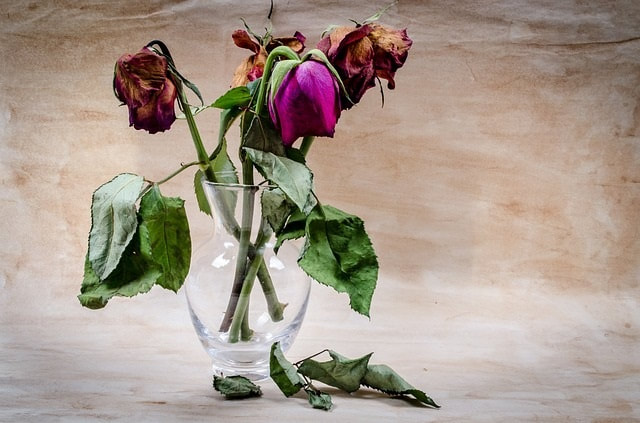
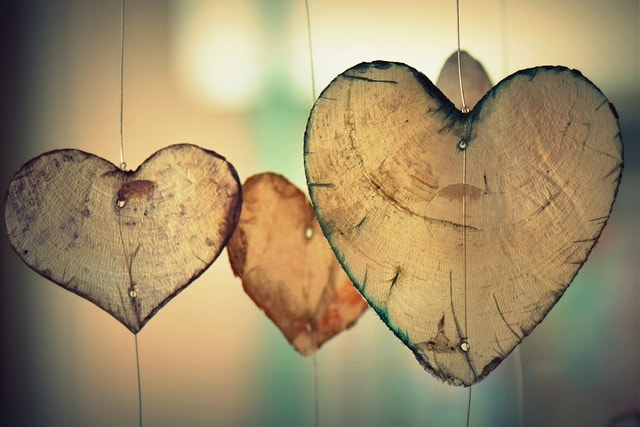

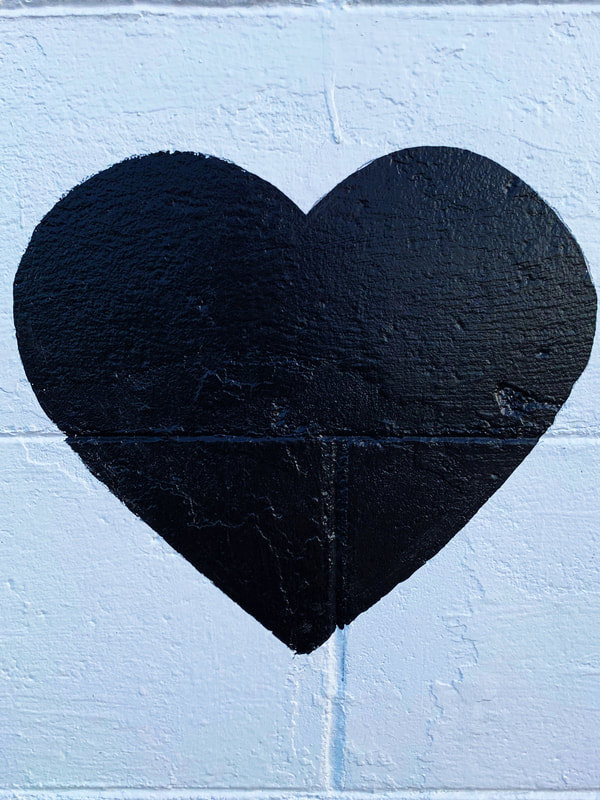
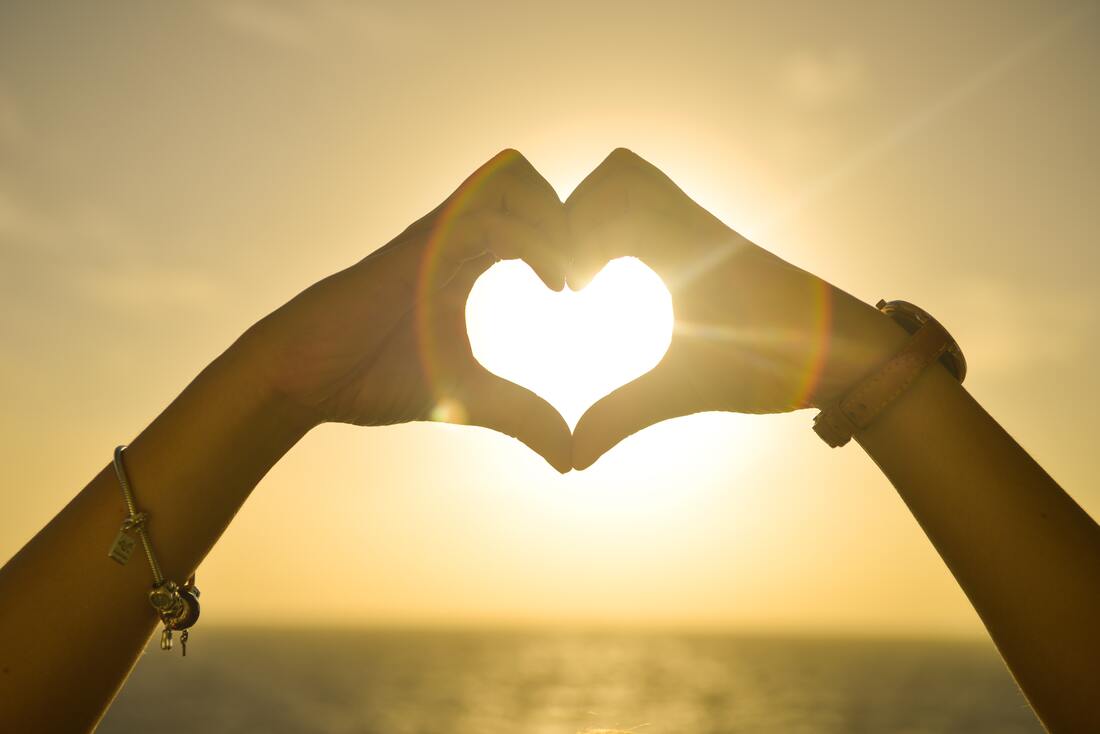

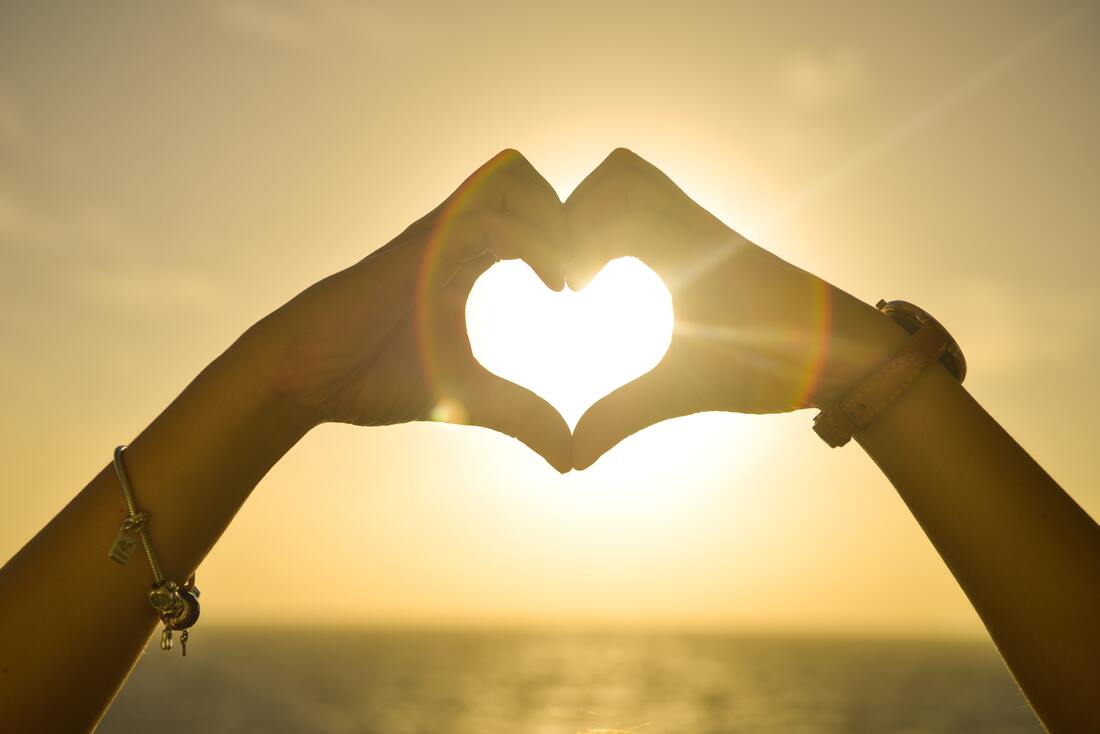
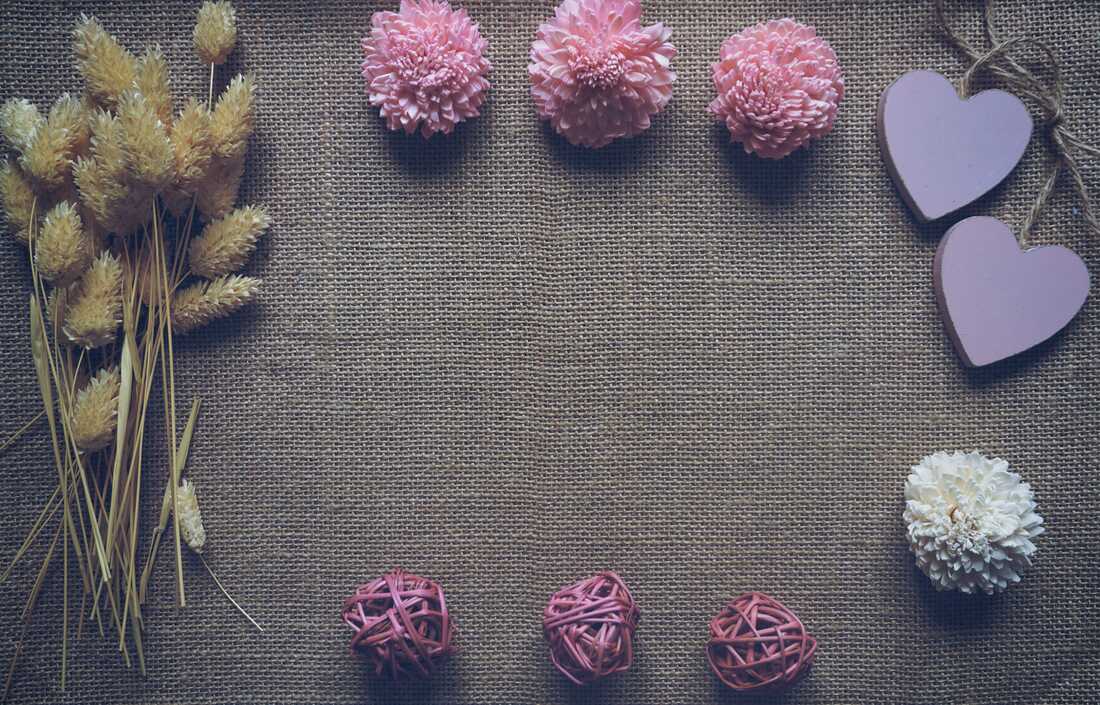
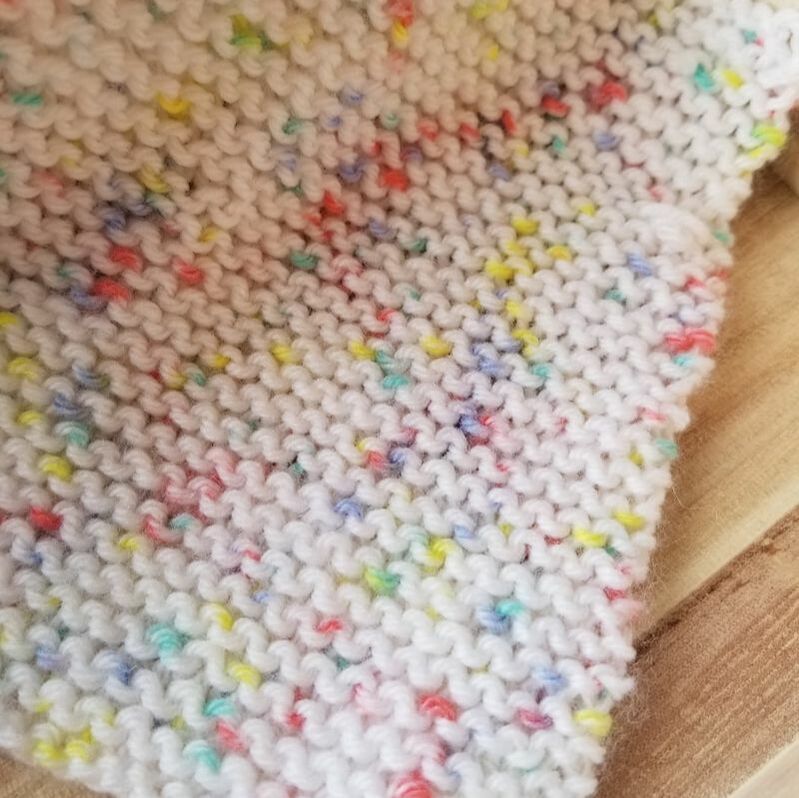


 RSS Feed
RSS Feed